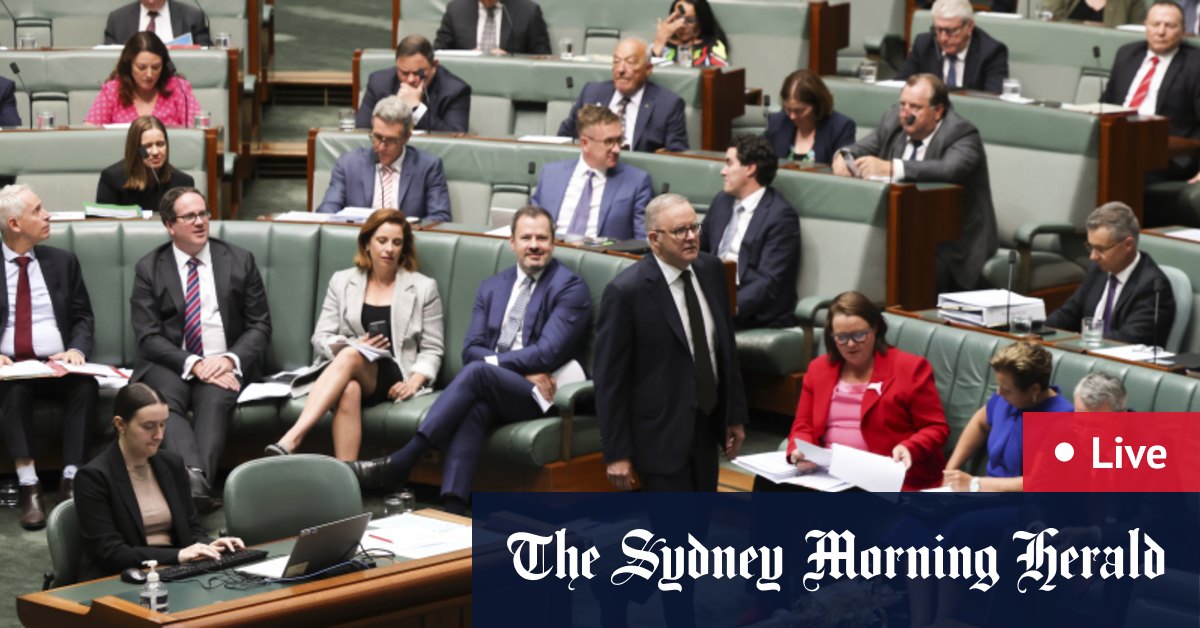Australia
Banks told to ignore HECS when weighing up home loans; Israel threatens to restart war in Gaza if Hamas doesn’t release hostages

The Fragile Ceasefire in Gaza: A Ticking Time Bomb
The situation in Gaza remains precarious as Israeli Prime Minister Benjamin Netanyahu has issued a stark warning: Israel will withdraw from the current ceasefire and resume military operations if Hamas fails to release the remaining hostages by Saturday. This ultimatum comes amid heightened tensions, with both sides accusing each other of violating the terms of the fragile truce. Hamas has alleged that Israel is impeding the delivery of essential supplies, such as tents and shelters, to the war-torn territory, further exacerbating the humanitarian crisis. Meanwhile, U.S. President Donald Trump has added fuel to the fire, warning that “all hell” could break out if the hostages are not freed by the deadline.
Trump’s Middle East Strategy: Pressure on Jordan and Controversial Remarks
As the region teeters on the brink of renewed conflict, President Trump is leveraging his influence to push for a controversial plan to reshape the Middle East. At the White House, Trump hosted Jordan’s King Abdullah II, intensifying pressure on the key U.S. ally to accept refugees from Gaza—potentially permanently. This proposal has sparked outrage among Palestinians and the international community, particularly after Trump’s inflammatory remarks suggesting that Palestinians displaced from Gaza would not have a right to return. Such statements have been met with widespread condemnation, as they appear to undermine the principles of international law and the rights of displaced populations.
The Hostage Swap: A Delicate Balancing Act
The ceasefire has so far facilitated a series of hostage exchanges, with Hamas agreeing to release 33 captives seized during its October 7, 2023, attack in exchange for Israel freeing nearly 2,000 Palestinian prisoners. Since January 19, five rounds of swaps have been successfully carried out, resulting in the release of 21 hostages and over 730 Palestinian prisoners. However, the process is far from complete, and the second phase of the ceasefire, which aims to secure the return of all remaining hostages and extend the truce indefinitely, remains a significant challenge. If no agreement is reached, the war could resume as early as March, plunging the region back into chaos.
The Humanitarian Crisis in Gaza: A Devastating Reality
The conflict in Gaza has left the territory in ruins, with thousands of civilians caught in the crossfire. The destruction of infrastructure, including homes, schools, and hospitals, has created a dire need for aid. However, the flow of humanitarian assistance has been hampered by restrictions imposed by Israel, which Hamas claims are violations of the ceasefire agreement. The lack of basic necessities, such as shelter and medical supplies, has further compounded the suffering of the civilian population. International organizations have repeatedly called for unhindered access to Gaza to deliver aid, but the political impasse continues to block progress.
The International Community’s Role: A Call for Urgent Action
The international community has been urged to play a more active role in mediating the conflict and ensuring the protection of civilians. However, the lack of consensus among global powers has hindered efforts to broker a lasting peace. The U.S., in particular, has faced criticism for its perceived bias toward Israel and its controversial proposals for resolving the crisis. Meanwhile, countries like Jordan, which are being pressured by the Trump administration to absorb Palestinian refugees, are caught in the middle of a highly volatile situation. The urgent need for a unified and equitable approach to address the root causes of the conflict cannot be overstated.
The Way Forward: A Path to Peace or More Conflict?
As the deadline for the hostage release approaches, the region holds its breath. The resumption of hostilities would have catastrophic consequences, not only for Gaza but for the entire Middle East. Both sides must demonstrate the political will to compromise and adhere to the terms of the ceasefire. The international community, particularly the U.S., must also take a more balanced and constructive approach to mediating the conflict. The alternative—a return to war—would only deepen the suffering of innocent civilians and further destabilize an already volatile region. The clock is ticking, and the world waits anxiously to see if diplomacy will prevail or if the cycle of violence will continue unabated.











